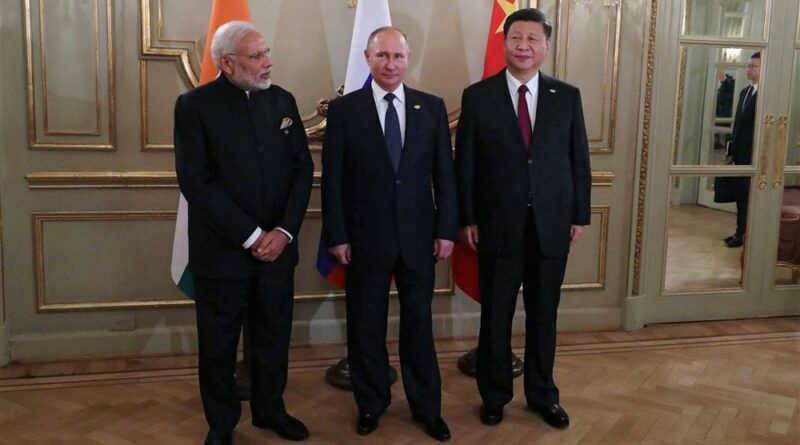Trump Questions India’s Alleged Alliance with China
On Friday, it was inferred by U.S. President Donald Trump that India may be leaning towards an alliance with China, a development that would strain its ties with the U.S. Government officials cautioned India that it may face consequences for its positioning, which may potentially include new sanctions. These warnings came after a picture was shared featuring Indian Prime Minister Narendra Modi, Russian President Vladimir Putin, and Chinese President Xi Jinping at the Shanghai Cooperation Organisation Summit in Tianjin this week.
Furthermore, the Chinese Embassy in Washington released a statement to the Post emphasizing that China’s intention behind advancing relations with any country is to mutually benefit and not directed against any third entity. This statement was represented by their spokesperson Liu Pengyu who commented, ‘Our global stage should promote win-win cooperation as opposed to becoming an arena of conflict featuring winners and losers.’ Moreover, the diplomat stressed on the importance of equality and impartiality in international relationships, cautioning against any geopolitical exploitation.
The Indian foreign ministry spokesperson, Randhir Jaiswal, refused to remark on Trump’s statements, but reiterated the two nations’ commitment to a relationship founded on mutual respect and common interest. Later the same day, when asked if the U.S. had lost its grip on India to China, Trump clarified that he did not believe that to be the case.
However, he expressed disappointment towards India’s decision to continue purchasing Russian oil, citing the significant tariffs he had imposed on Indian imports as a consequential measure. Trump’s comments, which seemingly combined India and Russia into a ‘China camp’, could be interpreted as a reflection of his increasing dissatisfaction with leaders he had personally pursued.
Trump has been noted for his warmer diplomacy towards Putin compared to his predecessors, in an attempt to bring an end to the ongoing conflict in Ukraine lasting nearly four years. Simultaneously, he has also built a personal relationship with Modi, whom he considers as a friend. However, the perception of betrayal from these leaders appears to have sorely impacted Trump’s sentiments.
Hours after these exchanges on Friday, US Commerce Secretary Howard Lutnick stated that India is likely to apologize to Washington in due course and encouraged New Delhi to renounce its involvement in the Brics Alliance, which also includes China, Russia, and Brazil. Lutnick is confident that India will find its way to the negotiation table, looking to strike a favourable deal with Trump.
Lutnick, who is a key player in Trump’s trade negotiations team, mentioned in an interview with Bloomberg, ‘I believe that within a month or two, India will reverse its stance and express its regret to Washington, and will make attempts to negotiate with Donald Trump.’ This came in the backdrop of the United States imposing up to 50% tariffs on Indian goods, primarily intended to penalize India for its Russian oil imports and historically high tariffs.
India’s Trade Minister, Piyush Goyal, critiqued these impositions as unilateral and obstructive. Over recent weeks, Beijing has expressed its support for New Delhi on this issue, labelling the U.S. as a ‘bully’. In the meantime, Chinese authorities have been in continuing dialogue with American officials with the ambition of reaching a trade agreement by November.
The SCO summit in Tianjin signalled a potential strengthening in India-China relations, manifested in policies advancing border disengagement and simplified visa processes for Chinese citizens. Photographic evidence of President Xi, Prime Minister Modi, and President Putin sharing a jovial moment together garnered significant global attention on various social media platforms.
India’s relationship with China has been fraught, particularly after the deadly border clashes on the disputed Himalayan border region last year, but India and Russia have shared cordial relations and mutual trust for many years. India has been maintaining a strategic balance between aligning with Beijing-led and U.S.-led alliances, featuring prominently on the platforms such as Brics, SCO, and the Quad that includes the US, Japan, and Australia.
In the recent past, particularly during the term of ex-president Joe Biden, the U.S. was seen making overtures towards India, viewing it as a vital ally capable of countering China in the Indo-Pacific region. Preceding his visit to the SCO summit, PM Modi, in an interview, stressed on the need for a stable India-China relationship that he views as essential for a multipolar Asia and the world.

